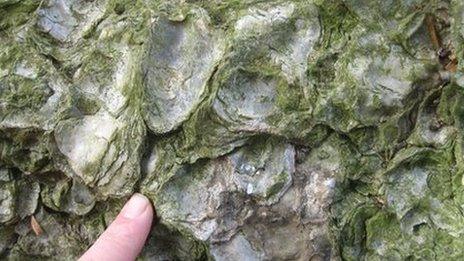Oxburgh Hall: Queen Victoria's Boer War chocolate found in attic
- Published
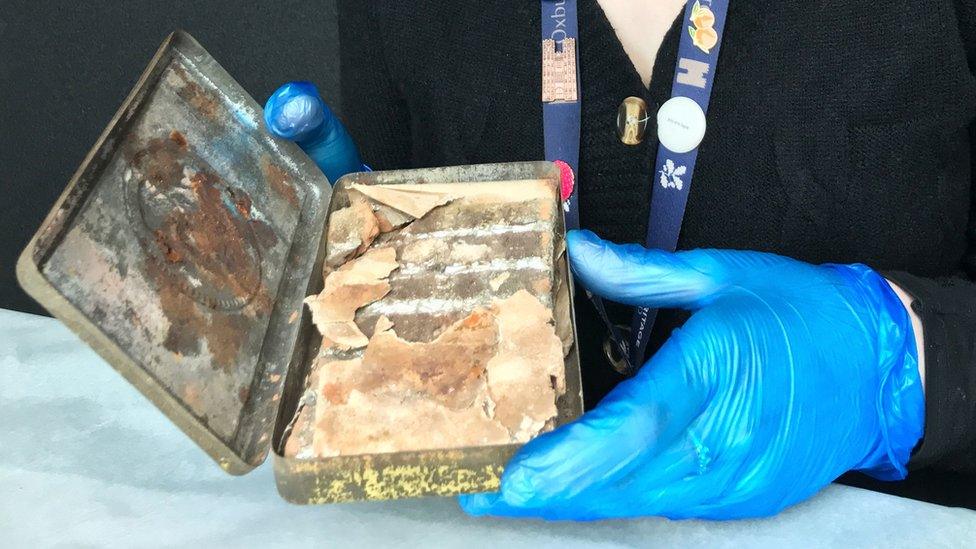
National Trust conservators found the chocolate bar in the attic at Oxburgh Hall, near Swaffham
A 121-year-old chocolate bar that was given to British troops to boost morale during the Boer Wars in South Africa has been discovered in the attic of a National Trust property.
The chocolate, still in its original wrapper and tin, was part of a batch commissioned by Queen Victoria in 1900.
It was found in a Boer War helmet case at Oxburgh Hall in Norfolk.
The National Trust's cultural heritage curator, Anna Forrest, said it was a "remarkable find".
The chocolate, which belonged to the 8th Baronet, Sir Henry Edward Paston-Bedingfeld, was discovered by National Trust conservators.
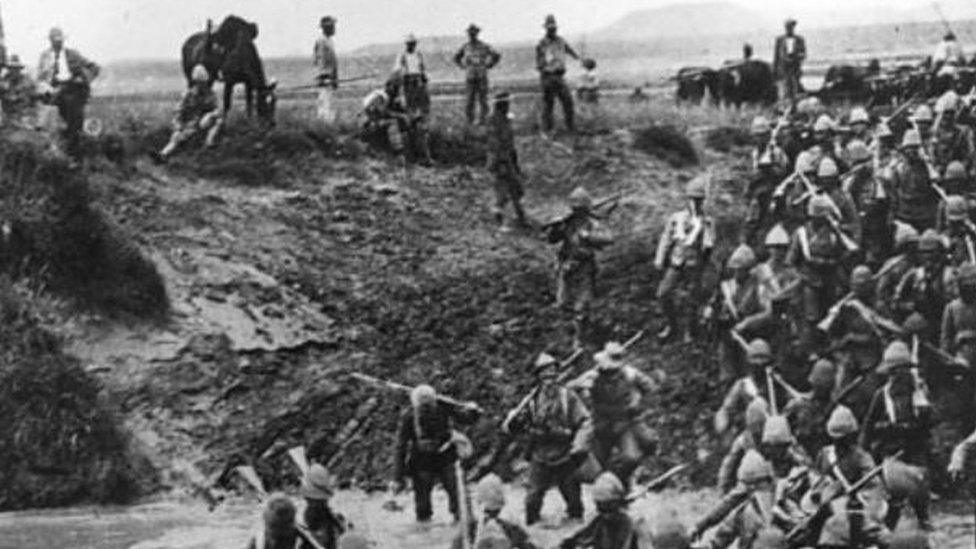
The Second Boer War took place between 1899 and 1902
They had been cataloguing the belongings of his daughter Frances Greathead, who died last year aged 100.
The Second Boer War was fought between 1899 and 1902 between the British Empire and two independent Boer states who were vying for control of South Africa.
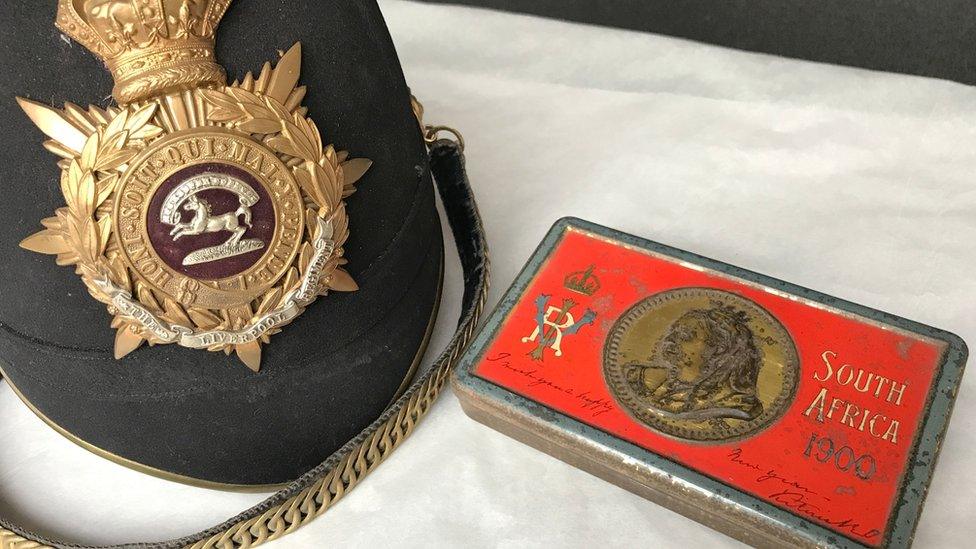
The chocolate bars were manufactured by Cadbury, Fry and Rowntree
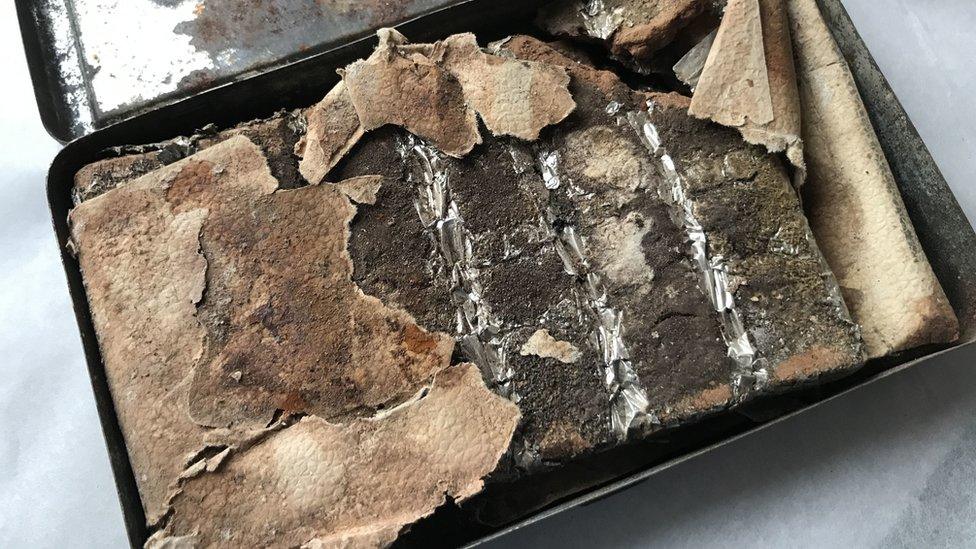
As they were a gift from Queen Victoria, many soldiers preserved their chocolate tins, with some posting them back home for safekeeping
Queen Victoria commissioned three British producers - Fry, Cadbury and Rowntree - to produce more than 100,000 tins, each containing a half-pound of plain chocolate.
The National Trust said that, as pacifist Quakers who opposed the war, all three manufacturers refused to accept payment for the order and originally donated the chocolate in unbranded tins.
However, the Queen insisted the troops should know they were getting British chocolate and the firms backed down, marking some bars. The tins themselves were never branded.
It was intended every soldier and officer would receive a box with the inscription "South Africa 1900" and, in the Queen's handwriting, "I wish you a happy New Year".

You may also be interested in:
120-year-old chocolate discovered in Australian poet Banjo Paterson's belongings

Ms Forrest said: "Although it no longer looks appetising and is well past its use-by date - you wouldn't want it as your Easter treat - it is still complete and a remarkable find.
"We can only assume the 8th Baronet kept the chocolate with the helmet as a memento of his time in the Boer War."
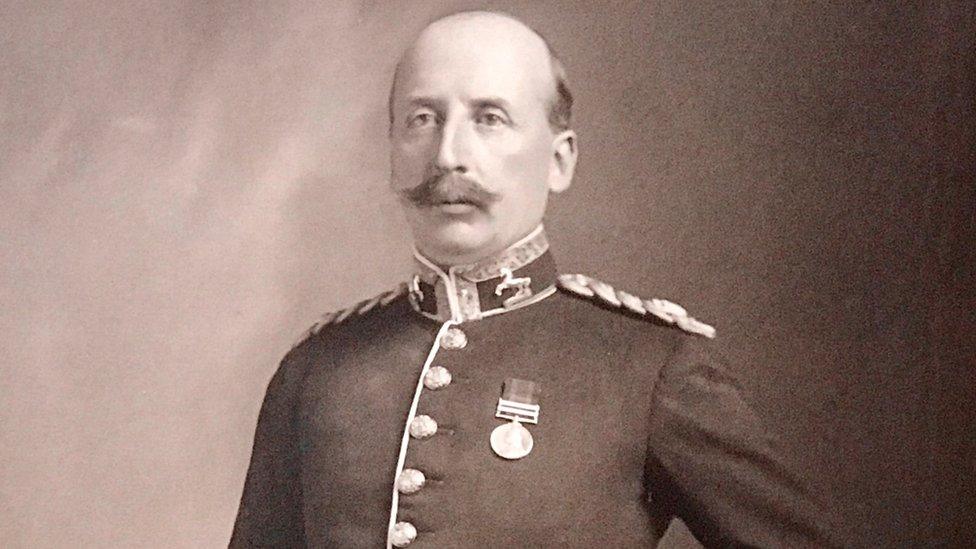
Sir Henry Edward Paston-Bedingfeld served as a major during the Boer War
She said Sir Henry had been a major in the militia of the King's Liverpool Regiment and had been in South Africa when his father died in 1902.
Ms Forrest said: "We believe that's when he returned home to Oxburgh, with the chocolate, his helmet and a new title."
The National Trust hopes to put the items on display in the future.

Find BBC News: East of England on Facebook, external, Instagram, external and Twitter, external. If you have a story suggestion email eastofenglandnews@bbc.co.uk, external
Related topics
- Published17 August 2020
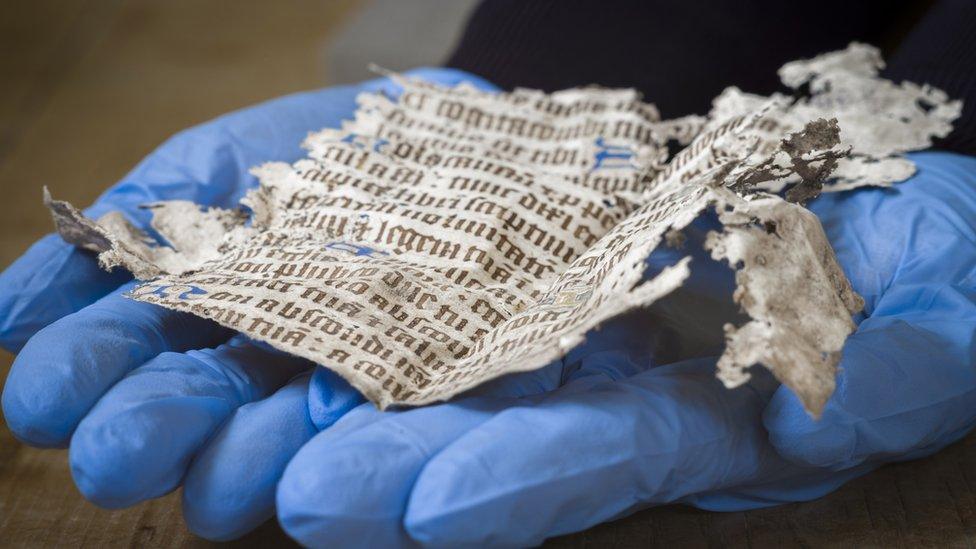
- Published30 October 2018
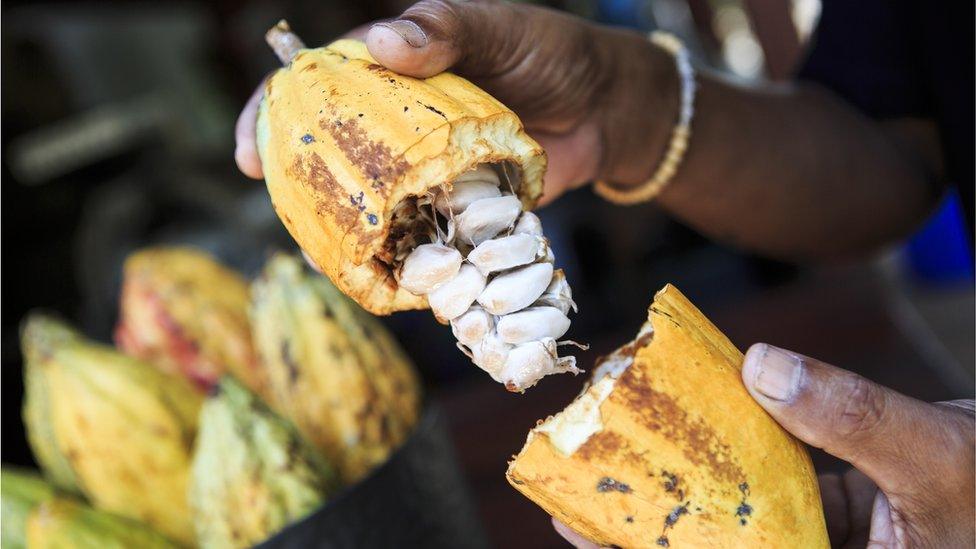
- Published23 August 2011
